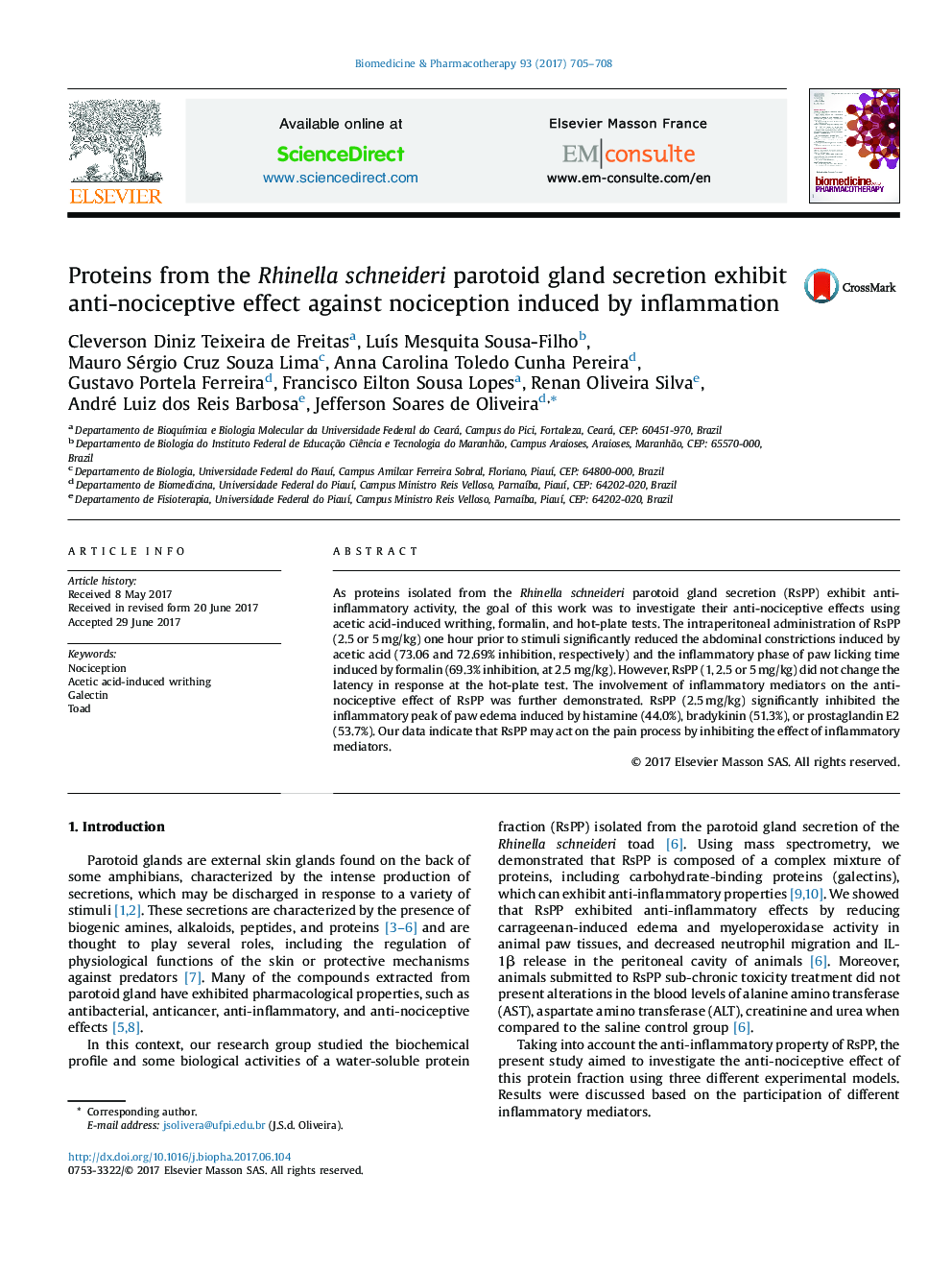| Article ID | Journal | Published Year | Pages | File Type |
|---|---|---|---|---|
| 5552679 | Biomedicine & Pharmacotherapy | 2017 | 4 Pages |
As proteins isolated from the Rhinella schneideri parotoid gland secretion (RsPP) exhibit anti-inflammatory activity, the goal of this work was to investigate their anti-nociceptive effects using acetic acid-induced writhing, formalin, and hot-plate tests. The intraperitoneal administration of RsPP (2.5 or 5Â mg/kg) one hour prior to stimuli significantly reduced the abdominal constrictions induced by acetic acid (73.06 and 72.69% inhibition, respectively) and the inflammatory phase of paw licking time induced by formalin (69.3% inhibition, at 2.5Â mg/kg). However, RsPP (1, 2.5 or 5Â mg/kg) did not change the latency in response at the hot-plate test. The involvement of inflammatory mediators on the anti-nociceptive effect of RsPP was further demonstrated. RsPP (2.5Â mg/kg) significantly inhibited the inflammatory peak of paw edema induced by histamine (44.0%), bradykinin (51.3%), or prostaglandin E2 (53.7%). Our data indicate that RsPP may act on the pain process by inhibiting the effect of inflammatory mediators.
Graphical abstractDownload high-res image (171KB)Download full-size image
